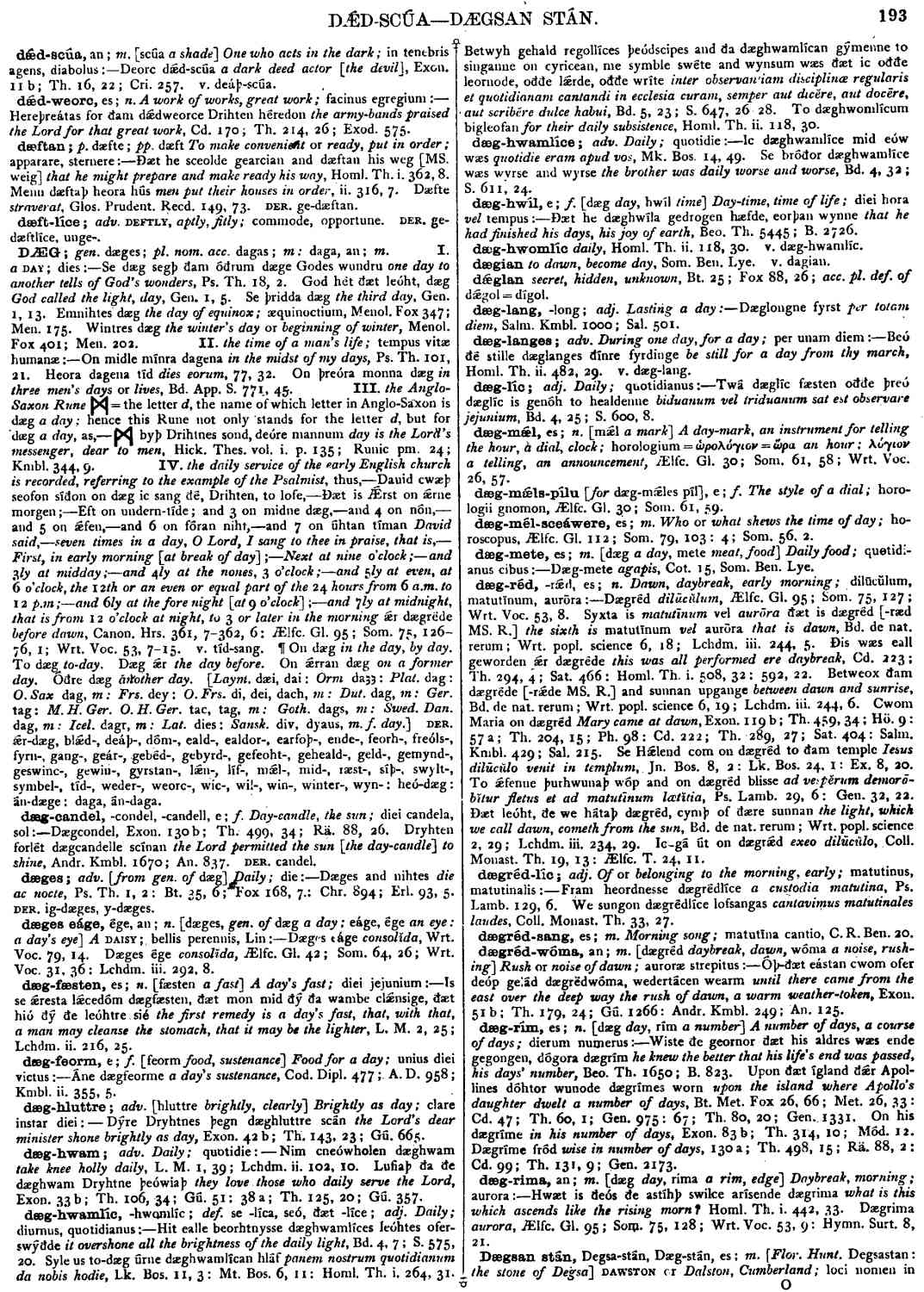dæg-réd
- noun [ neuter ]
-
Dægréd
dilūcŭlum,
- Ælfc. Gl. 95 ;
- Som. 75, 127;
- Wrt. Voc. 53, 8.
-
Syxta is matutīnum vel aurōra ðæt is dægréd [-ræd MS. R.] the sixth is matutīnum vel aurōra
that is dawn,
- Bd. de nat. rerum ;
- Wrt, popl. science 6, 18;
- Lchdm. iii. 244. 5 .
-
Ðis wæs eall geworden ǽr dægréde
this was all performed ere daybreak,
- Cd. 223 ;
- Th. 294, 4;
- Sat. 466: Homl. Th. i. 508, 32: 592, 22.
-
Betweox ðam dægréde [-rǽde MS. R.] and sunnan upgange
between dawn and sunrise,
- Bd. de nat. rerum ;
- Wrt. popl. science 6, 19;
- Lchdm. iii. 244, 6.
-
Cwom Maria on dægréd
Mary came at dawn,
- Exon. 119 b ;
- Th. 459, 34;
- Hö. 9: 57 a ;
- Th. 204, 15;
- Ph. 98: Cd. 222 ;
- Th. 289, 27;
- Sat. 404: Salm. Kmbl. 429 ;
- Sal. 215 .
-
Se Hǽlend com on dægréd to ðam temple
Iesus dilūcŭlo venit in templum,
- Jn. Bos. 8, 2: Lk. Bos. 24, 1: Ex. 8, 20.
-
To ǽfenne þurhwunaþ wóp and on dægréd blisse
ad vespĕrum demorābĭtur fletus et ad matutīnum lætĭtia,
- Ps. Lamb. 29, 6: Gen. 32, 22.
-
Ðæt leóht, ðe we hátaþ dægréd, cymþ of ðære sunnan
the light, which we call dawn, cometh from the sun,
- Bd. de nat. retum ;
- Wrt. popl. science 2, 29;
- Lchdm. iii. 234, 29.
-
Ic gá út on dægrǽd
exeo dilūcŭlo,
- Coll. Monast. Th. 19, 13: Ælfc. T. 24, 11.
Bosworth, Joseph. “dæg-réd.” In An Anglo-Saxon Dictionary Online, edited by Thomas Northcote Toller, Christ Sean, and Ondřej Tichy. Prague: Faculty of Arts, Charles University, 2014. https://bosworthtoller.com/7349.
Checked: 1